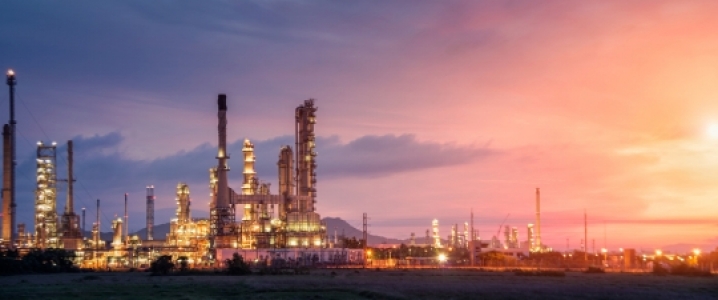While even the most likely new pipeline to ship more of Alberta’s crude oil to refining and export markets—Enbridge’s Line 3 replacement—is nearly a year away at the earliest, the province hosting most of Canada’s oil production has been desperately seeking other ways to get more value for its natural resources.
Alberta is looking to boost the crude-by-rail capacity to transport an additional 120,000 bpd of its oil over the next three years. In the most drastic measure yet, the province mandated an oil production cut of 325,000 bpd for three months starting January 2019, to clear the current glut and lift record-low Canadian heavy oil prices.
Alberta is also looking to another solution to alleviate the crude oil glut—having a new oil refinery built in the province that would absorb part of the crude and unlock some space on congested pipelines shipping oil out of the province.
Analysts, however, are not convinced that a new refinery would help much to clear the oil glut. First, Alberta’s current refineries already produce more than enough gasoline and diesel to meet local demand. Second, any excess of fuel has to be moved out of the province, too. Shipping those products to markets faces similar issues like the current crude oil takeaway capacity bottlenecks. Third, those refined products would have to compete for a share on a flat or declining North American fuel market, where U.S. refineries already produce more gasoline and other refined products than America consumes. Related: U.S. Army Joins Race To Expand U.S. Oil Exports
Shortly after announcing the oil production cut, Alberta’s Premier Rachel Notley said that the government was issuing a Request for Expression of Interest to determine business cases for investing in a new refinery in Alberta or tied to Alberta production. The Alberta government will accept expressions of interest until February 8 and will consider interest in new greenfield investments or an expansion of facilities at an existing brownfield site.
Alberta’s government didn’t specify how it would support the project. Yet, even if it were to follow up the expression-of-interest stage with “issuing a Request for Proposals to construct a new refinery,” the potential new project would take years to complete and start up production.
“Building a new refinery would create good-paying, long-term jobs for Albertans. New refining capacity would also help lower the oil price differential over the long term, protecting the province from a lack of capacity to export oil, and making sure we get full value for the energy resources owned by all Albertans,” the statement seeking industry interest said.
Alberta has four operating refineries and a new one starting up any time now. The Suncor Refinery in Edmonton, the Imperial Oil Refinery in Edmonton, the Shell Canada Refinery in Scotford, and the Husky Asphalt Refinery in Lloydminster have a total capacity of 454,000 bpd, while the Sturgeon Refinery of the North West Redwater Partnership (NWR) has started up some units and is set to start commercial production this year. The refinery will have a capacity to process 79,000 bpd, increasing total Alberta refinery capacity to 533,000 bpd. Related: Is Iran Exaggerating The Demand For Its Oil?
Those refineries already produce more fuels than Alberta consumes and any new refinery would have to fight for market access and markets, amid more challenging refining economics, according to analysts.
“You still have to ship that product to market,” Jason Parent, vice president of consulting at Ontario-based downstream consultancy Kent Group Ltd, told Bloomberg.
According to Kevin Birn, director of North American crude oil markets at IHS Markit, potential new refineries in Alberta in five years’ time would not help the province’s current takeaway capacity constraints with crude oil.
“By the time you get this facility on, you are looking four or five years down the line. If you can’t get your egress solved by then, you’ve got a problem,” Birn told Bloomberg.
While more refining capacity in Alberta could alleviate the crude oil glut—if it still exists in four or five years—it could create more fuel oversupply that would need access to markets anyway. What’s certain is that a new refinery tomorrow won’t ease Alberta’s crude oil excess today.
By Tsvetana Paraskova for Oilprice.com
More Top Reads From Oilprice.com:
- Is Oil Demand Growth A Certainty In 2019?
- Why Goldman Just Drastically Slashed Its Oil Price Prediction
- Saudis Set Sights On $80 Oil

















